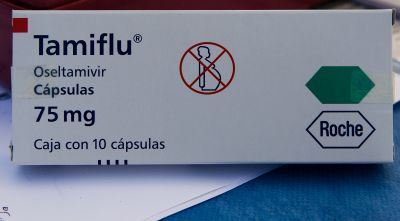Experts question use of Tamiflu

Your support helps us to tell the story
From reproductive rights to climate change to Big Tech, The Independent is on the ground when the story is developing. Whether it's investigating the financials of Elon Musk's pro-Trump PAC or producing our latest documentary, 'The A Word', which shines a light on the American women fighting for reproductive rights, we know how important it is to parse out the facts from the messaging.
At such a critical moment in US history, we need reporters on the ground. Your donation allows us to keep sending journalists to speak to both sides of the story.
The Independent is trusted by Americans across the entire political spectrum. And unlike many other quality news outlets, we choose not to lock Americans out of our reporting and analysis with paywalls. We believe quality journalism should be available to everyone, paid for by those who can afford it.
Your support makes all the difference.Experts question the effectiveness of antiviral drug Tamiflu commonly used against the swine flu virus spreading across the globe, according to a study reported in Britain Tuesday.
An investigation by the British Medical Journal and Channel 4 News acknowledges that the drug oseltamivir, which trades as Tamiflu, has "a modest effect in reducing flu symptoms and infectivity in otherwise healthy adults."
But "researchers say there is insufficient published data to know if oseltamivir reduces complications in otherwise healthy adults," the media groups said in a joint statement.
Channel 4 News was to air the investigation Tuesday.
The use of flu drugs like oseltamivir has increased dramatically since the A(H1N1), or swine flu, pandemic began in April 2009, with government rushing to stockpile treatments while persuading people to have vaccinations.
The global death toll since the virus was uncovered in April approached 8,770 in early December, with confirmed infections in 207 countries, according to World Health Organisation figures.
Claims about the effectiveness of drugs like Tamiflu against flu complications have been a key factor in governments' choosing to spend millions of dollars to hoard them, the British Medical Journal and Channel 4 said.
The British government has spent about 500 million pounds (813.9 million dollars) on such drugs, they said.
But research on the drugs by scientists from Australia's Bond University was hampered by a "paucity of good data" available from Swiss pharmaceutical giant Roche that produces oseltamivir.
"As a result, they conclude that they have no confidence in claims that oseltamivir reduces the risk of complications of influenza in otherwise healthy adults, and believe it should not be used in routine control of seasonal influenza."
The researchers called on governments to set up studies to monitor the safety of drugs like Tamiflu, which are called neuraminidase inhibitors.
A team from the University of Birmingham concluded meanwhile that oseltamivir may reduce the risk of pneumonia in otherwise healthy people who contract flu.
"However, the absolute benefit is small, and side effects and safety should also be considered," the statement said.
Professor Nick Freemantle from the University of Birmingham said he saw "very little evidence to support the widespread use of oseltamivir in the otherwise healthy population who are developing signs of influenza-like illness."
"We have remarkably few resources in this country to spend on pharmaceuticals on health and it’s surprising to see such widespread use of oseltamivir," he said.
British Medical Journal editor-in-chief Fiona Godlee warned that the review left unresolved important questions about effectiveness of the drugs.
"Governments around the world have spent billions of pounds on a drug that the scientific community now finds itself unable to judge," she said.
Roche has estimated sales of 1.6 billion pounds this year alone from the drug, the statement said.
br/sas
Join our commenting forum
Join thought-provoking conversations, follow other Independent readers and see their replies
Comments